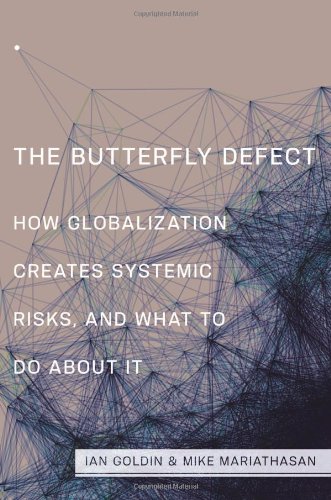

Most ebook files are in PDF format, so you can easily read them using various software such as Foxit Reader or directly on the Google Chrome browser.
Some ebook files are released by publishers in other formats such as .awz, .mobi, .epub, .fb2, etc. You may need to install specific software to read these formats on mobile/PC, such as Calibre.
Please read the tutorial at this link: https://ebookbell.com/faq
We offer FREE conversion to the popular formats you request; however, this may take some time. Therefore, right after payment, please email us, and we will try to provide the service as quickly as possible.
For some exceptional file formats or broken links (if any), please refrain from opening any disputes. Instead, email us first, and we will try to assist within a maximum of 6 hours.
EbookBell Team

5.0
48 reviewsGlobal hyperconnectivity and increased system integration have led to vast benefits, including worldwide growth in incomes, education, innovation, and technology. But rapid globalization has also created concerns because the repercussions of local events now cascade over national borders and the fallout of financial meltdowns and environmental disasters affects everyone. The Butterfly Defect addresses the widening gap between systemic risks and their effective management. It shows how the new dynamics of turbo-charged globalization has the potential and power to destabilize our societies. Drawing on the latest insights from a wide variety of disciplines, Ian Goldin and Mike Mariathasan provide practical guidance for how governments, businesses, and individuals can better manage risk in our contemporary world.
Goldin and Mariathasan assert that the current complexities of globalization will not be sustainable as surprises become more frequent and have widespread impacts. The recent financial crisis exemplifies the new form of systemic risk that will characterize the coming decades, and the authors provide the first framework for understanding how such risk will function in the twenty-first century. Goldin and Mariathasan demonstrate that systemic risk issues are now endemic everywhere--in supply chains, pandemics, infrastructure, ecology and climate change, economics, and politics. Unless we are better able to address these concerns, they will lead to greater protectionism, xenophobia, nationalism, and, inevitably, deglobalization, rising conflict, and slower growth.
The Butterfly Defect shows that mitigating uncertainty and systemic risk in an interconnected world is an essential task for our future.